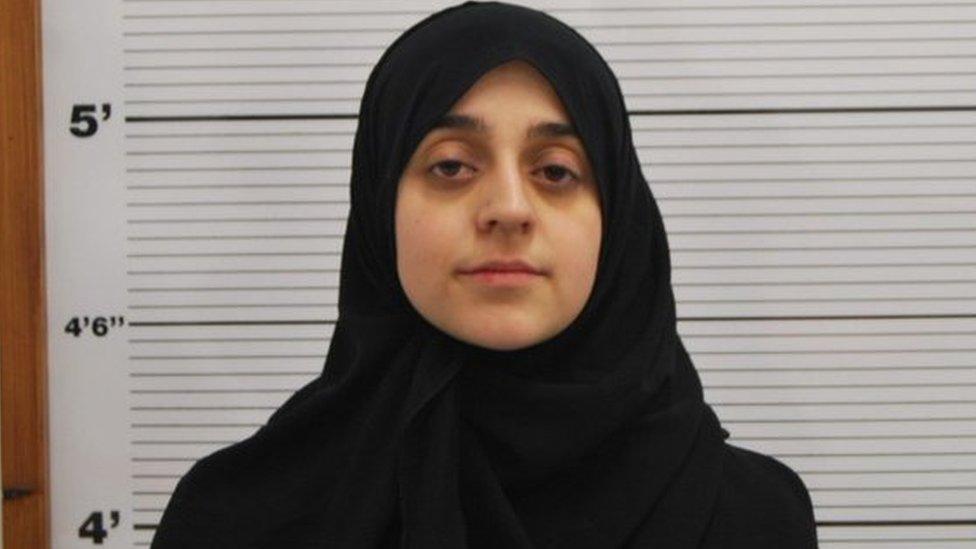Tareena Shakil: Why British woman is guilty of joining Islamic State group
- Published
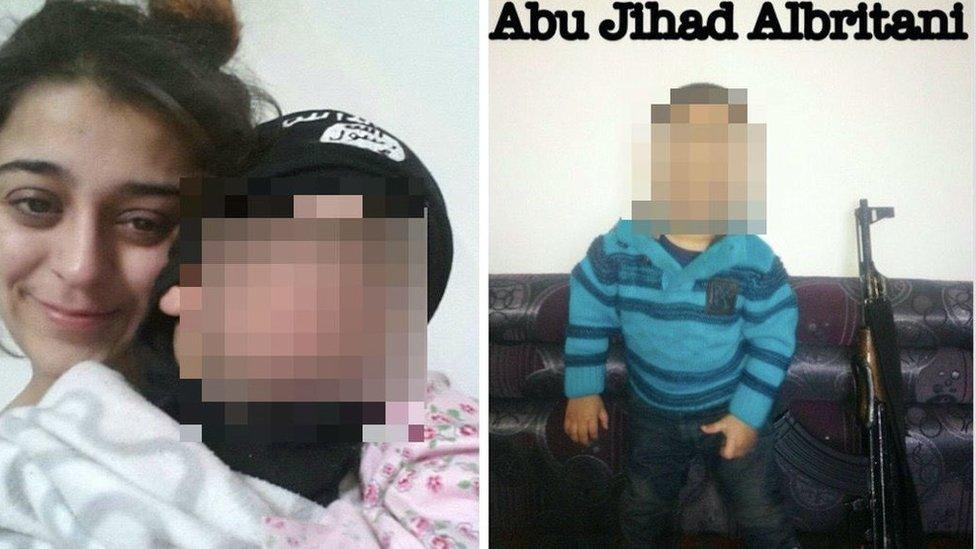
Tareena Shakil with her son in Syria
Tareena Shakil has become the first woman in the UK to be convicted of "membership" of the self-styled Islamic State organisation - but she never had a membership card, says she deeply regrets going to Syria, and - in a courtroom twist - told the jury she'd even helped MI5 on her return.
So why did she face this very serious charge and end up with a criminal conviction that could see her in prison for 10 years?
She is among approximately 60 women and girls known to have gone from the UK to Syria - but she is the first to have faced such serious charges on her return.
Terrorism legislation says that membership of a banned group means to "belong" - but how could "belonging" be proved in the case of a so-called organisation like Islamic State?
Experts say that men swear an oath to IS, but the situation with women is less clear.
Islamic State has an official women's wing, known as Al Khanssah, that is said to control the lives of women who migrate to the territory - but there was no direct evidence that Shakil was part of it, only that her life was dominated by its matrons once she arrived.
Instead, the prosecution and her conviction came down to her pattern of behaviour and her own evidence about what she did and posted on social media.
The 26-year-old from Burton upon Trent, left the UK to join IS in October 2014.
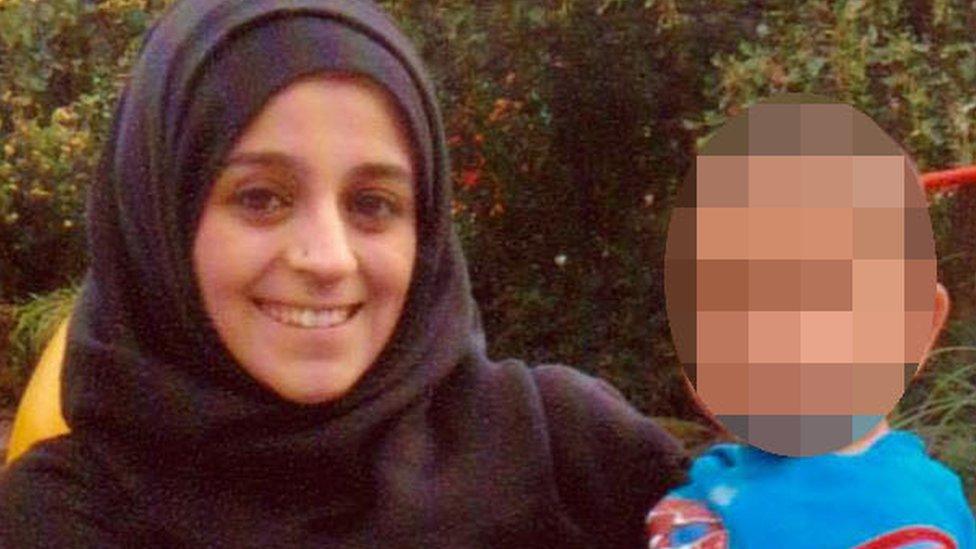
Happier times: Before Tareena Shakil left the UK
Shakil began planning her journey after fleeing domestic abuse as her relationship with her partner collapsed.
After weeks of research, including talking to two key British women inside Islamic State, the court heard she had convinced herself that going to Syria was a good idea.
The prosecution said she wanted to further the aims of the banned terror group. She said she was looking for safety and peace within "an Islamic state" where there would be no alcohol or drugs.
But two of her key contacts in Syria were well-known jihadist sympathisers - Britons Sally Ann Jones, also known as Umm Hussain Britaniyya, and Glasgow woman Aqsa Mahmood.
Mahmood has published extensive diaries and guidance online, telling women how to arrive and what to bring.
Shakil spoke to both and in one message told Jones: "I wish I was there".

Tareena Shakil's online profile changed in the weeks leading up to her departure
In October, Shakil told her family she was going on holiday to Turkey with her son, then around 18 months old. They helped her pack and saw her off at East Midlands Airport.
Days later she announced she wasn't coming back - and the family found two notes she had left behind.
"If you are reading this then I am long gone and you clearing out the house," she wrote. "I love you all, never forget that. Whatever is in the house I'll leave to you mum, have it all, it's yours. I won't say goodbye because this isn't the end."
She later confirmed her location.
"We crossed the border today so we are now in Syria living there. I love you loads… this is the hardest thing I've done x."
When she first returned to the UK, she told police she had been kidnapped. But her evidence at trial was completely different.
She admitted she had used smugglers working for IS to go on a clandestine journey from Turkey into Syria - and from there to Raqqa, the self-styled Islamic State's capital, and was being ideologically prepared as a prospective jihadi bride.
"U think I'm a terrorist lol," she quipped to people back home. "It is part of our [religion] to kill the murtadeen [apostates]. U shouldn't communicate with terrorist, they will take your phone. I can't give you personal information about how we travel because no-one can be trusted. They bomb us daily - to give u this would be silly."
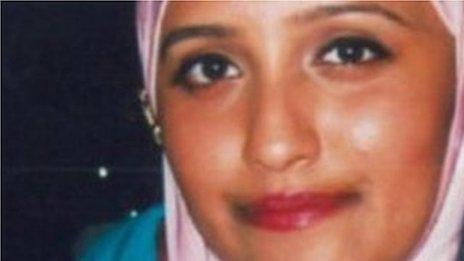
Aqsa Mahmood was a contact of Shakil's in Syria
She posted a series of messages professing her support for IS.
Two clearly include her son, who cannot be named for legal reasons. In one, the toddler is smiling next to a large rifle. Text superimposed over the image give him the name "Abu Jihad al-Britani".
And in mid-November she confirmed to a friend in the UK she had met a prospective husband.
But she found no happiness in Syria either.
Shakil told the jury she realised she had made a mistake when she took against the idea of marrying an American-Italian fighter with a limp. She organised a daring escape that involved a taxi ride to the Turkish border - and a run across open land and through a barbed wire fence.
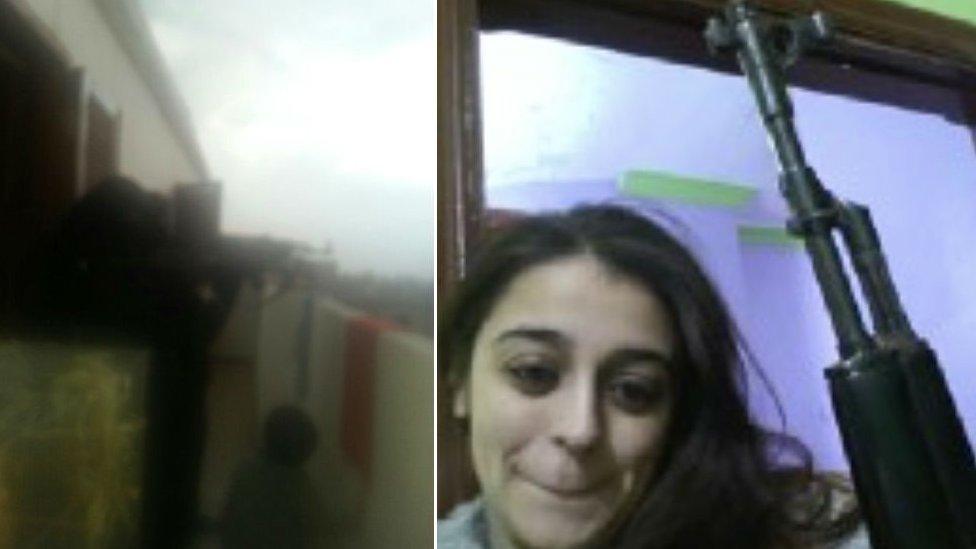
Social media evidence: Detectives seized images of Shakil and veiled figures with guns in Syria
So why did the jury convict her of membership?
Judge Melbourne Inman QC told the jury they had to test what membership amounted to.
He told them to not think about membership in terms of belonging to a library or a gym. Instead, they had to decide whether Tareena Shakil voluntarily went to be with IS in Syria, knowing its aims, how it would achieve them and, crucially, seeking to associate with like-minded individuals.
"Obviously if someone is associated with members of a terrorist organisation and only submits to the organisation's requirements or will because they have to and don't share with furthering the aims of that organisation, then clearly that does not amount to them being a member of it."
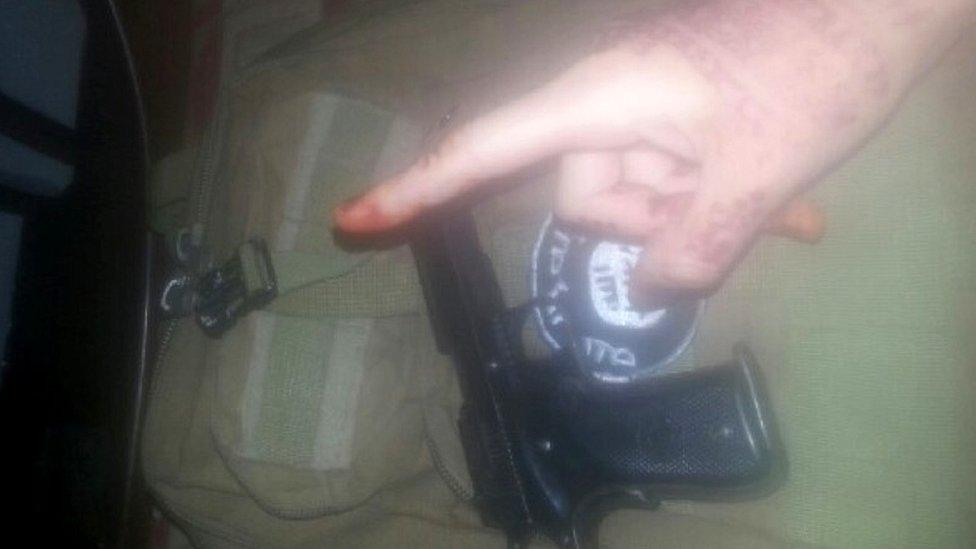
Gun and emblem: Evidence obtained from Tareena Shakil
Tim Maloney QC, defending, urged the jury to think twice before convicting.
"Her partner was sleeping around and getting drunk… abusing her physically and psychologically," he said.
"It's breakdown time; she's vulnerable. [The IS recruiter] cultivates her and at that time she goes from nought to 60 in no time whatsoever, because she's being groomed.
"She may have been attracted to an idealised vision of ISIS [Islamic State], but as soon as she saw what it was like she came back.
"When she got back she helped the authorities. She's not in ISIS, she's someone who has done something really wrong that she badly regrets."
- Published29 January 2016
